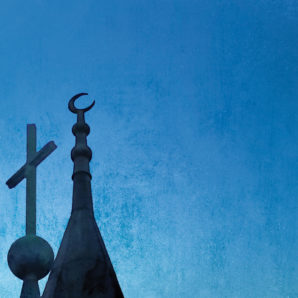Two American Fears: Islamophobia and Homophobia
Series: Intersecting Phobias
This moment presents both difficulties and opportunities for analyzing the intersections of Islamophobia and homophobia. By historicizing the emergence of each, we gain analytical clarity about the complex negotiations of identity, never static but always becoming.
Read More →
This moment presents both difficulties and opportunities for analyzing the intersections of Islamophobia and homophobia. By historicizing the emergence of each, we gain analytical clarity about the complex negotiations of identity, never static but always becoming.
Read More →
